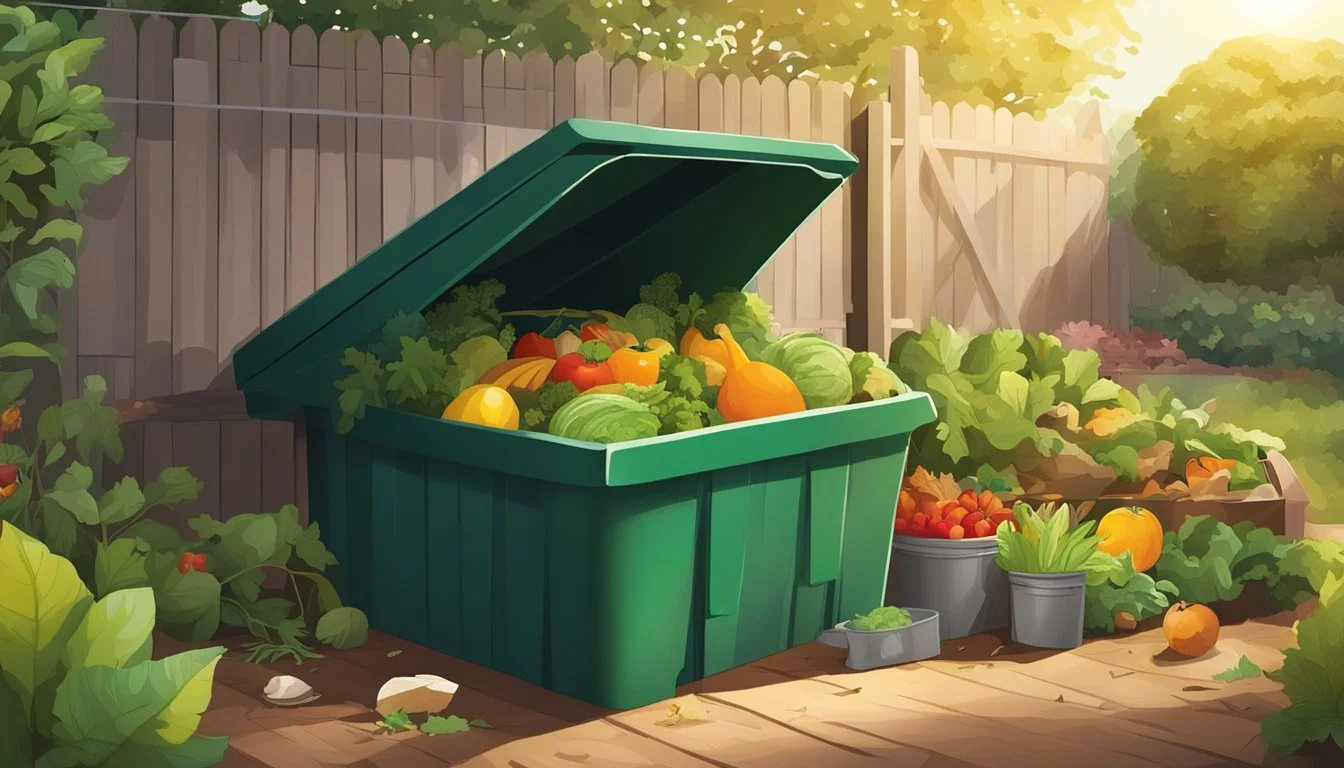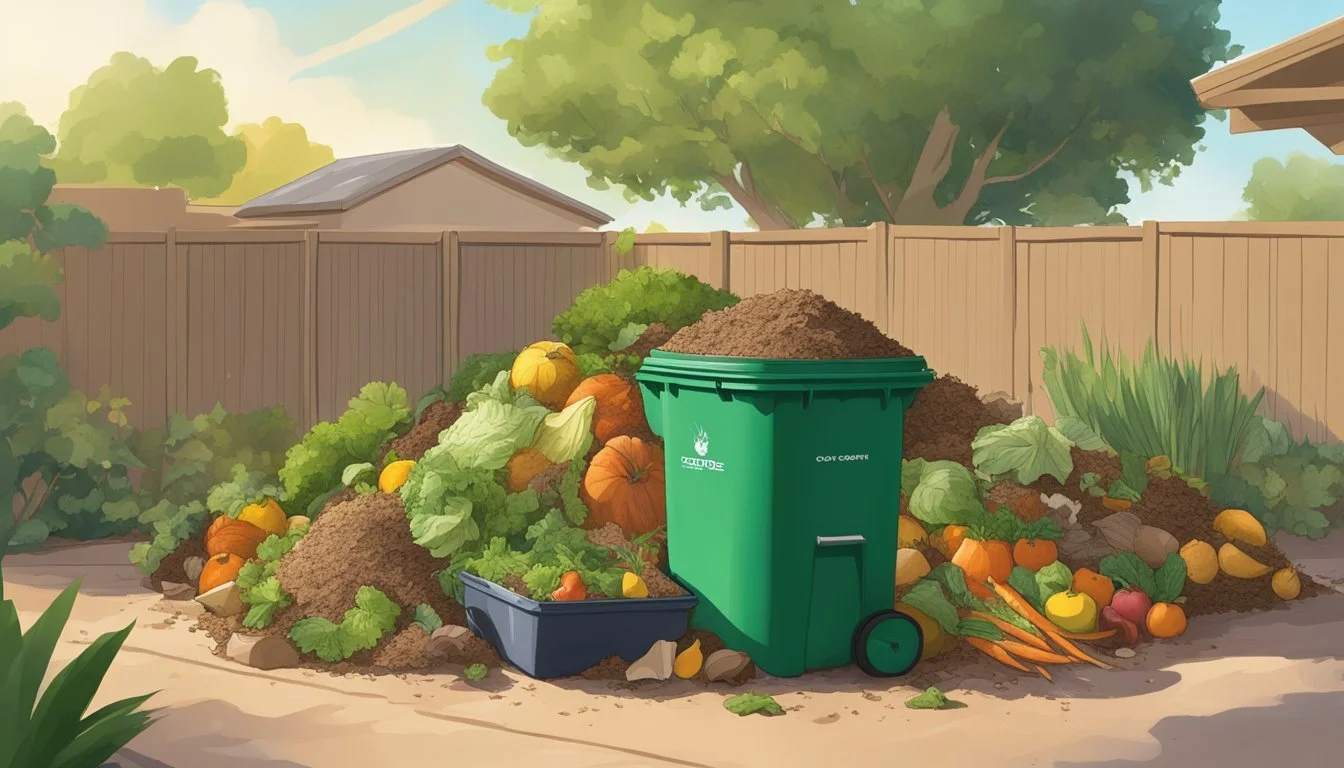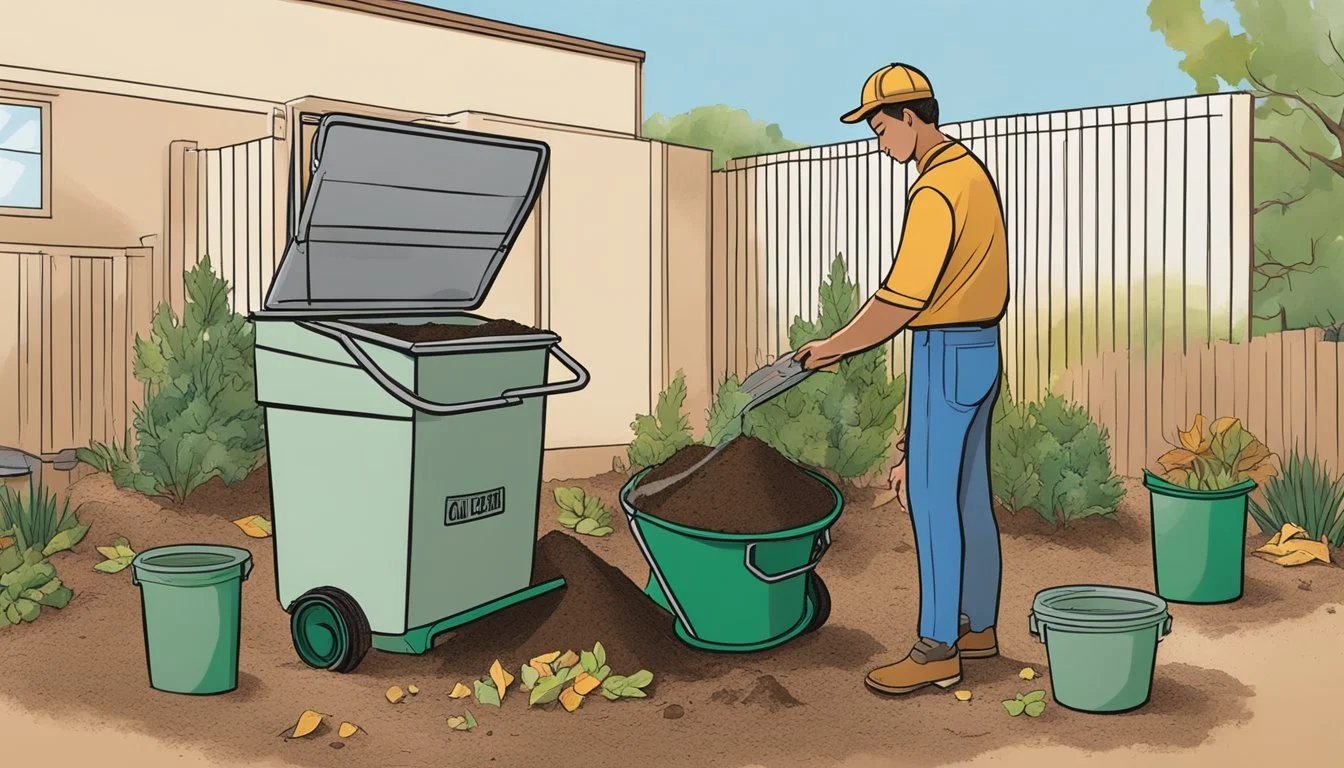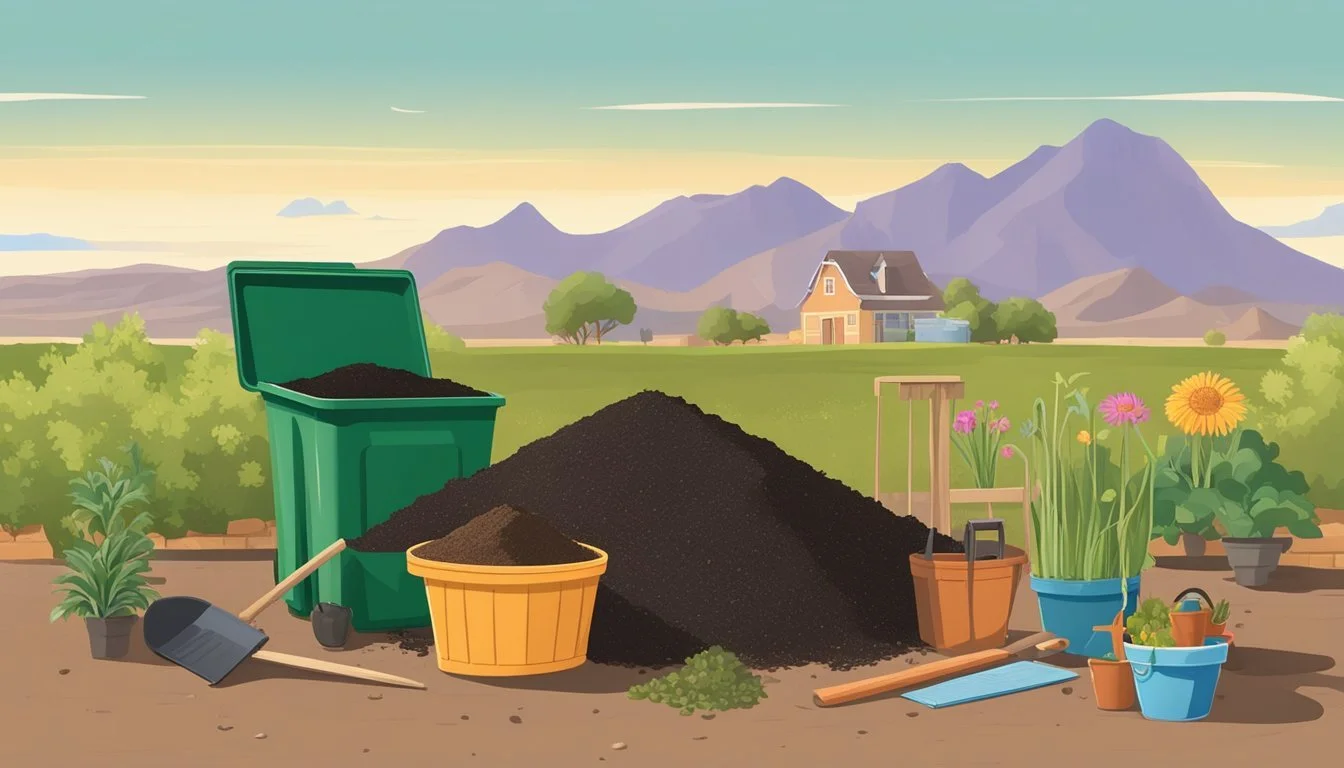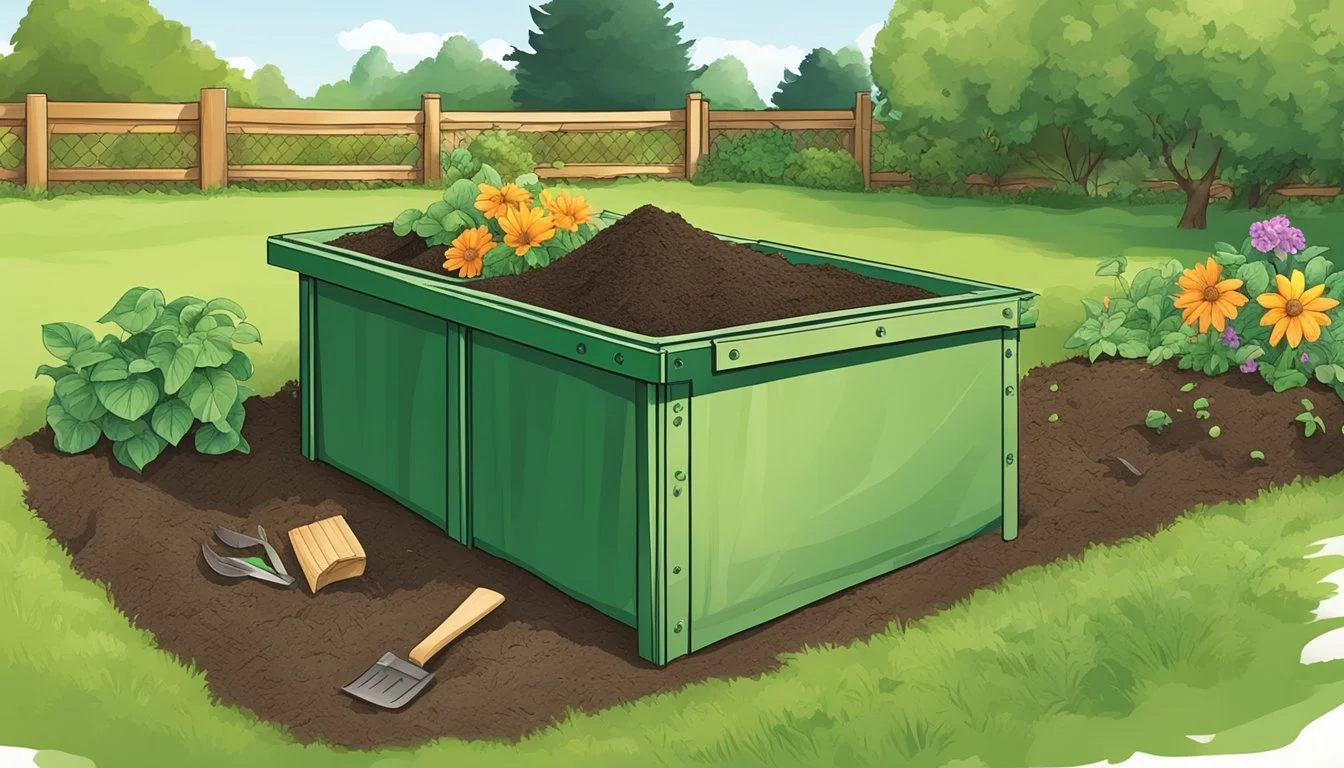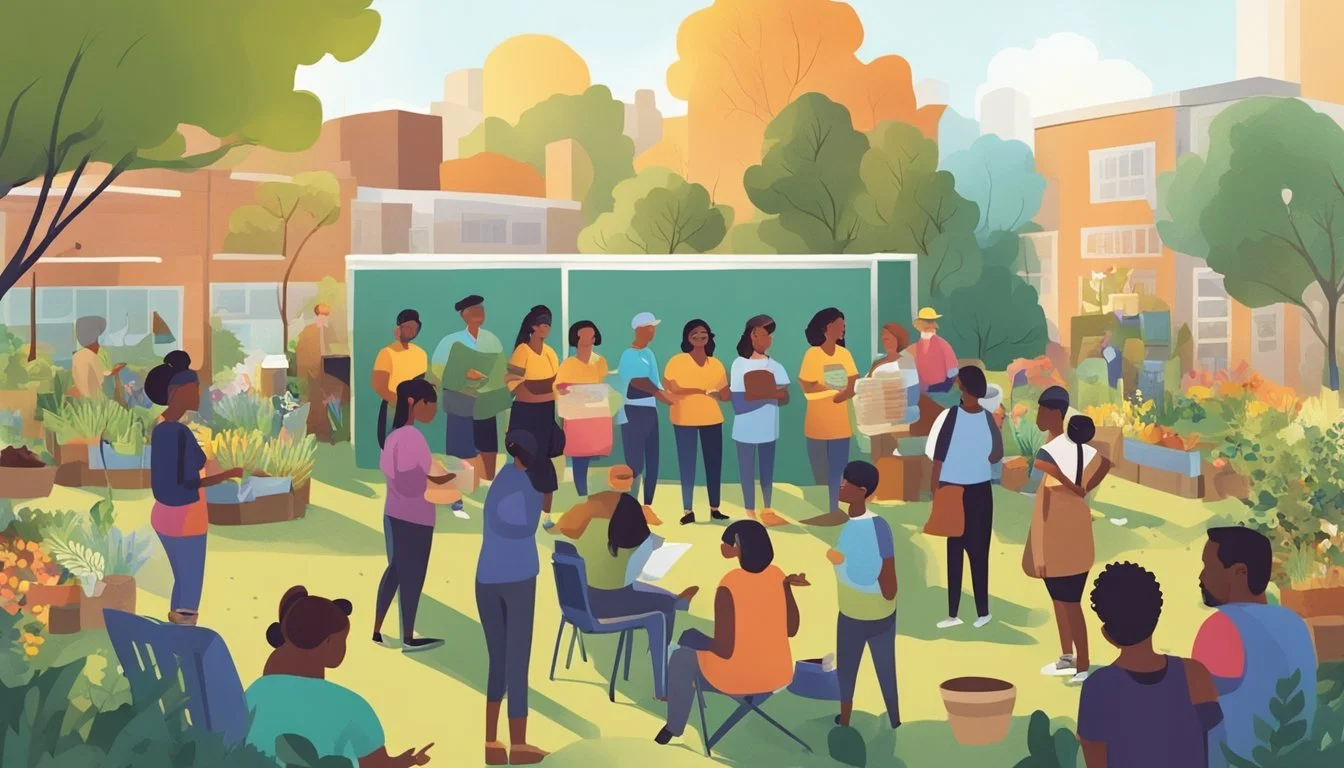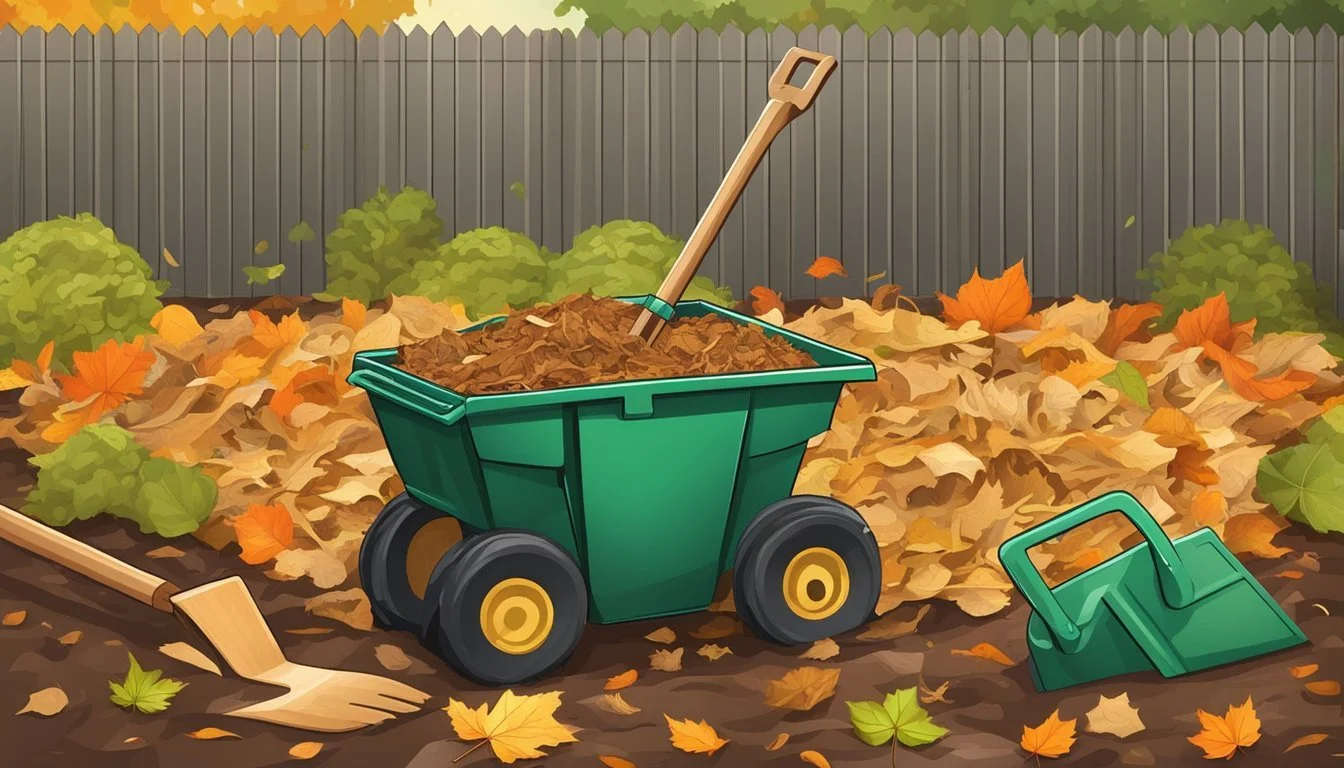Guide to Composting in Las Cruces, NM
Essential Tips for Local Gardeners
Composting is a valuable sustainability practice, and for residents of Las Cruces, NM, embracing this eco-friendly habit can contribute significantly to reducing landfill waste and enhancing soil health. The city provides resources and facilities to encourage and facilitate composting efforts. With a bit of guidance, the process of turning yard waste and kitchen scraps into nutrient-rich soil amendments is straightforward and rewarding.
In Las Cruces, the composting landscape is supported by various initiatives and locations where citizens can drop off green waste for recycling or pick up compost for their garden. Information on how to use Class "A" compost suggests a methodical approach, advising to spread the compost in layers no thicker than half an inch. For those looking to dispose of yard waste, guidelines state that tree limbs should not be longer than 5 feet or wider than 5 inches in diameter, upholding safety and equipment maintenance.
Engaging with the community's green and yard waste programs not only contributes to a more sustainable environment but also provides gardeners with a natural method to enrich their soil. Las Cruces has taken steps to ensure that composting is accessible and beneficial for its residents, highlighting the city's commitment to environmental stewardship.
The Basics of Composting
In Las Cruces, NM, composting is a crucial practice for converting organic waste into a beneficial soil amendment, fostering healthier gardens and landscapes.
What is Composting?
Composting is the natural process of recycling organic matter—such as leaves, vegetable scraps, and yard trimmings—into a valuable organic fertilizer that enriches the soil and supports plant growth. It involves the breakdown of this organic waste by microorganisms, such as bacteria and fungi, in the presence of air and moisture.
Benefits of Composting
Composting offers significant environmental benefits, including reducing landfill waste and lowering greenhouse gas emissions. For gardeners in Las Cruces, compost enhances plant growth by improving soil structure, increasing soil fertility, and providing essential nutrients. This nutrient-rich soil amendment reduces the need for chemical fertilizers, promoting the growth of healthier plants and crops.
Understanding Organic Matter
Organic matter is the backbone of composting, comprising materials like kitchen scraps, yard waste, and coffee grounds. As these materials decompose, they become part of a dark, crumbly, and earthy-scented substance known as compost. This substance is teeming with beneficial microorganisms that aid in nutrient cycling, ultimately contributing to a more nutrient-rich and fertile soil capable of supporting diverse plant life.
Setting Up Your Composting System
Creating a successful composting system in Las Cruces, NM depends on careful planning and a clear understanding of the necessary components. Here's how residents can establish a thriving compost setup in their backyards.
Choosing the Right Location
The location of a composting system is pivotal for its efficiency. A backyard spot with partial shade will protect it from extreme temperatures, while ensuring it remains accessible for adding materials and maintenance. The location should also have good drainage to prevent waterlogging.
Selecting a Composting Method
There are various methods of composting suitable for different needs. Traditional compost piles or bins are common, while vermicomposting, which uses earthworms to enhance the composting process, is ideal for smaller spaces. The selected method should align with the available space, desired maintenance level, and volume of compostable material.
Tools and Materials Required
The composting process requires a few basic tools and materials to start:
Compost bin or pile: Functional in containing the compost.
Organic material: A mix of greens (nitrogen-rich material) and browns (carbon-rich material).
Earthworms: Only if employing vermicomposting.
Shovel or pitchfork: Useful for turning the compost.
Gloves: To protect hands when handling compost.
By carefully considering each of these elements, Las Cruces residents can establish an effective composting system to turn kitchen scraps and yard waste into valuable soil amendments.
What to Compost
When creating compost in Las Cruces, NM, it's important to balance green and brown materials, ensuring the exclusion of items that can harm the composting process or the environment.
Green and Brown Materials
Green materials are rich in nitrogen and are crucial for initiating the composting process. These include:
Vegetable and fruit scraps
Coffee grounds and filters
Fresh grass clippings
Plant trimmings
Flowers
Brown materials provide carbon, which is equally essential. They include:
Dried leaves
Straw or hay
Shredded paper and cardboard
Wood chips or sawdust from untreated wood
Egg cartons made of paper
Twigs and branches, broken into smaller pieces for better decomposition
These items decompose at different rates but together create a healthy compost balance.
Items to Avoid in Your Compost
To maintain a healthy compost system, certain items should be avoided:
Meat, fish, bones, and dairy products: Attracts pests and can cause odor issues.
Diseased plants: May spread diseases back into the garden.
Dog, cat, or human waste: Can contain pathogens harmful to humans.
Plastic bags and trash: These do not break down and can release toxins.
Yard waste treated with chemicals: Can contaminate the compost and the future soil it would enrich.
Always remember, no dirt should be added to compost as it can hinder airflow and slow down the composting process. By carefully selecting appropriate materials, composters in Las Cruces can ensure they produce nutrient-rich compost for their gardens.
Maintaining Your Compost
Maintaining a compost pile in Las Cruces involves regular monitoring and adjustments to ensure optimal decomposition. Proper maintenance is crucial to prevent issues such as unpleasant odors and infestations.
Monitoring Moisture and Temperature
A successful composting process requires maintaining adequate moisture levels and temperature. The compost should feel like a wrung-out sponge, with a moisture level of about 40-60%. It’s essential to add water if the compost feels dry, or incorporate dry materials if it appears too wet. The temperature should be kept between 135-160 degrees Fahrenheit to effectively break down materials and kill pathogenic bacteria. Regularly turning the compost helps to maintain uniform temperature and moisture throughout the pile.
Managing Odors and Pests
To manage odors, ensure there is a proper balance between green nitrogen-rich materials and brown carbon-rich materials. A mix skewed too heavily towards green materials may lead to a smelly ammonia-like odor, indicating excess nitrogen. If the compost smells like rotten eggs, it may be too wet and lacking oxygen. Turning the compost can introduce air and reduce odor. For pest control, avoid adding dairy, meat, or oily foods, and ensure the compost is covered with a layer of soil or dry leaves.
Troubleshooting Common Issues
When faced with moisture loss, one might simply add water to the compost. However, in arid climates like Las Cruces, this can be a frequent issue. Regular checks prevent the compost from becoming too dry. If the pile is not heating up, it may need more nitrogen-rich materials, such as kitchen scraps or manure. Should an infestation occur, turning the pile more frequently can discourage pests by disrupting their habitat.
Utilizing Finished Compost
Once compost has matured, it becomes a powerful tool for improving soil health and aiding plant growth in both landscaping and gardening practices.
Compost Maturity and Application
Mature compost, also known as Class "A" compost, is crucial for its effective use in gardening and landscaping. One should apply this compost no greater than 1/2 inch depth to avoid over-saturation and potential nutrient runoff. The City of Las Cruces provides guidance on how to use Class "A" Compost, ensuring residents apply it properly as a soil amendment. When large amounts are handled, wearing a dust mask is advisable to avoid inhaling fine particles.
Benefits for Landscaping and Gardening
Finished compost offers multiple benefits as a soil amendment. It can significantly improve soil structure, enhance moisture retention, and provide essential nutrients. Using composted mulch from local facilities such as the Foothills Landfill Composting Facility is an eco-friendly way to promote healthy plant growth and create an aesthetically pleasing landscape. Compost used as ground cover can protect the soil from erosion and suppress weeds. For gardening, incorporating compost ensures that plants receive a balanced diet of nutrients, promoting healthier, more productive gardens.
Composting in Las Cruces: Local Resources
Las Cruces provides accessible composting services and community initiatives for both novice and experienced composters, offering resources for sustainable waste management and garden nourishment.
Las Cruces Utilities and Composting Services
Las Cruces Utilities (LCU) plays a pivotal role in composting services in the region. Residents can obtain free compost from the Jacob Hands Wastewater Treatment Facility, illustrating LCU's commitment to recycling organic waste. This service is a part of the Residential Solid Waste Service, aiming to reduce landfill use and enrich local soil.
Compost availability: Residents may pick up free compost, although quantities may be limited.
Pick-up location: Foothills Landfill Composting Facility, operational from Monday to Friday (8 a.m. - 4 p.m.) and Saturday (9 a.m. - 3 p.m.).
Contact Information: For details on composting services and guidelines, residents can contact Water Conservation at (575) 528-3549.
Community Composting Initiatives
Community composting in Las Cruces is gaining traction, thanks to various local groups and initiatives. These groups focus on education, promoting composting as a means to improve soil health and reduce organic waste.
Santa Fe Botanical Garden & Santa Fe County Master Gardeners: Offering educational resources for composting.
Backyard Farms: Works within Las Cruces promoting sustainable compost use in garden settings.
By utilizing community composting programs, Las Cruces residents play an active role in environmental stewardship, contributing to healthier soils and reduced landfill waste.
Environmental Impact and Sustainability
In Las Cruces, NM, composting provides significant environmental benefits, contributing to landfill waste reduction, mitigating climate change, and exemplifying a sustainable circular economy.
Reducing Landfill Waste
Composting is a highly effective form of organic waste management that significantly reduces the volume of waste that ends up in landfills. The EPA asserts that yard waste and food scraps constitute a sizeable portion of municipal solid waste. By composting these materials, Las Cruces residents can play a role in minimizing landfill contributions, which in turn can mitigate problems like toxic leachate and water contamination often associated with landfill overflow.
Composting and Climate Change
The process of composting organics circumvents the anaerobic breakdown of waste that occurs in landfills and emits large quantities of CO2 and methane, both potent greenhouse gases. By opting for composting, Las Cruces not only reduces emissions but also contributes positively by enriching soils, which strengthens erosion control and can help increase the soil's capacity to store carbon.
Promoting a Circular Economy
Las Cruces's approach aligns with the principles of a circular economy by repurposing biodegradable waste into nutrient-rich compost. This practice exemplifies sustainability, closes the loop on organic waste, and provides benefits such as improved soil health and reduced need for chemical fertilizers, which are vital in sustaining the local ecosystem's balance.
Composting Regulations and Best Practices
In Las Cruces, New Mexico, composting activities are subject to specific local laws and guidelines that aim to manage organic waste effectively. Adhering to these regulations is crucial for both individuals and organizations to ensure environmental sustainability and community health.
Local Laws and Guidelines
When composting in Las Cruces, it is important to understand the municipal regulations that govern the process. For instance, materials such as yard trimmings should be composted in a manner that prevents them from being windblown off property boundaries. The city advises spreading compost no greater than 1/2 inch in depth and suggests that individuals handling large quantities use a dust mask for protection.
Additionally, Municipal Solid Waste management strategies in Las Cruces incorporate organics recycling, where residents are encouraged to divert suitable waste from landfills to composting facilities.
New Mexico State Composting Policies
The broader scope of composting practices in the state is influenced by the New Mexico Compost Coalition, which consists of a partnership network including municipalities, businesses, and researchers. This coalition is dedicated to transforming food waste into valuable resources, thereby embodying the state's commitment to sustainable waste management.
State policies encourage cooperative approaches to composting and the facilitation of practices that adhere to environmental and health standards. The focus is on reducing the proportion of organic municipal solid waste while promoting healthy soil initiatives as guided by the New Mexico Healthy Soil Working Group.
Implementing effective composting practices contributes to the state's agricultural productivity and aligns with various programs and workshops promoting composting education and sustainable farming techniques, like the ones developed in conjunction with New Mexico State University.
Educational Opportunities and Community Engagement
Las Cruces, NM offers a robust array of educational opportunities and community engagement initiatives centered around composting. These programs are designed to equip residents with the practical knowledge necessary for successful composting while fostering partnerships that strengthen community efforts.
Workshops and Learning Resources
Las Cruces and surrounding areas provide a wealth of educational workshops that inform the community about the benefits and methods of composting. These workshops are often facilitated by New Mexico Healthy Soil and other local environmental groups, who provide resources for arid land composting strategies. Educational resources, such as signage that explains what can and cannot be composted, support these workshops to ensure that participants can practice composting correctly and efficiently.
Volunteering and Outreach Programs
The New Mexico Compost Coalition exemplifies a cooperative approach to community composting by bringing together municipalities, businesses, and non-profit organizations. They encourage locals to volunteer in various outreach programs that aim to extend composting services throughout the community. Through these volunteer opportunities, residents become advocates for composting, extending its benefits across New Mexico while contributing to robust, healthy soil ecosystems.
Challenges and Solutions in Composting
In Las Cruces, New Mexico, composting provides a means to reduce waste and enrich soil, yet it faces unique trials. Identifying these challenges and implementing effective solutions is critical in promoting composting practices.
Common Barriers to Composting in Las Cruces
Residents and businesses in Las Cruces face several hurdles when it comes to effective composting. Lack of Space emerges as a primary concern, especially in urban settings where residential and commercial entities may find it difficult to allocate areas for composting. To combat this issue, Home Composting methods have adapted to include compact systems such as tumblers or bokashi bins that require minimal space.
Another challenge is the Pests and Wildlife attracted to composting sites, which raises concerns for homeowners and deters engagement. Enclosed composting containers or systems covered with secure lids have proven essential in preventing access by animals and maintaining sanitary conditions.
Price Barriers also impede the widespread adoption of composting. While the initial investment in composting equipment may seem high, educational efforts about the long-term cost savings and environmental benefits may encourage broader participation. Furthermore, subsidized composting bins or community-scale composting programs can alleviate financial constraints.
Strategies to Encourage Composting
Community Composting initiatives represent a strong opportunity to scale composting efforts beyond the individual. By establishing shared sites, such as those coordinated by the New Mexico Compost Coalition, communities can collectively manage organic waste even when individual space or resources are limited.
For both Residential and Commercial sectors, the introduction of Compost Collection Services can streamline the composting process. These services, which can be established by private enterprises or municipal systems, offer regular pickups of organic waste and turn what was once a logistical burden into a convenient and routine practice.
Educational campaigns that highlight the simplicity and benefits of composting can dispel misconceptions and embolden more residents to undertake Home Composting. Workshops, incentives, and easy access to composting materials can lead to increased community engagement and heightened environmental stewardship.
By addressing the specific concerns of space, pests, and cost through innovative strategies and community support, Las Cruces can develop into a model city for successful composting.

